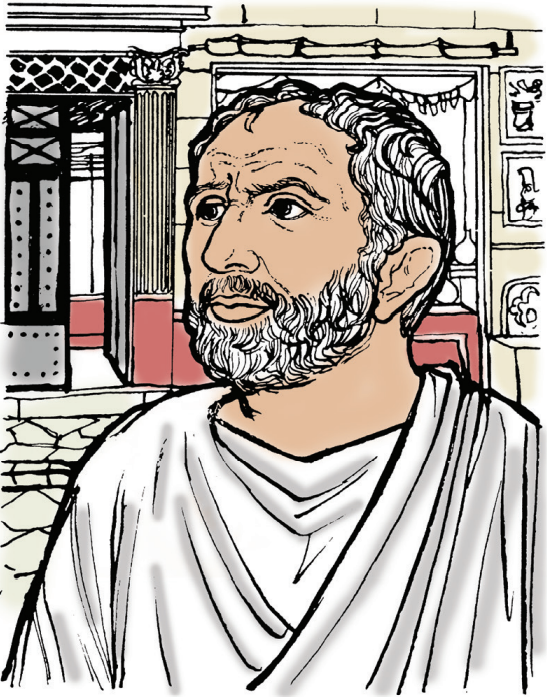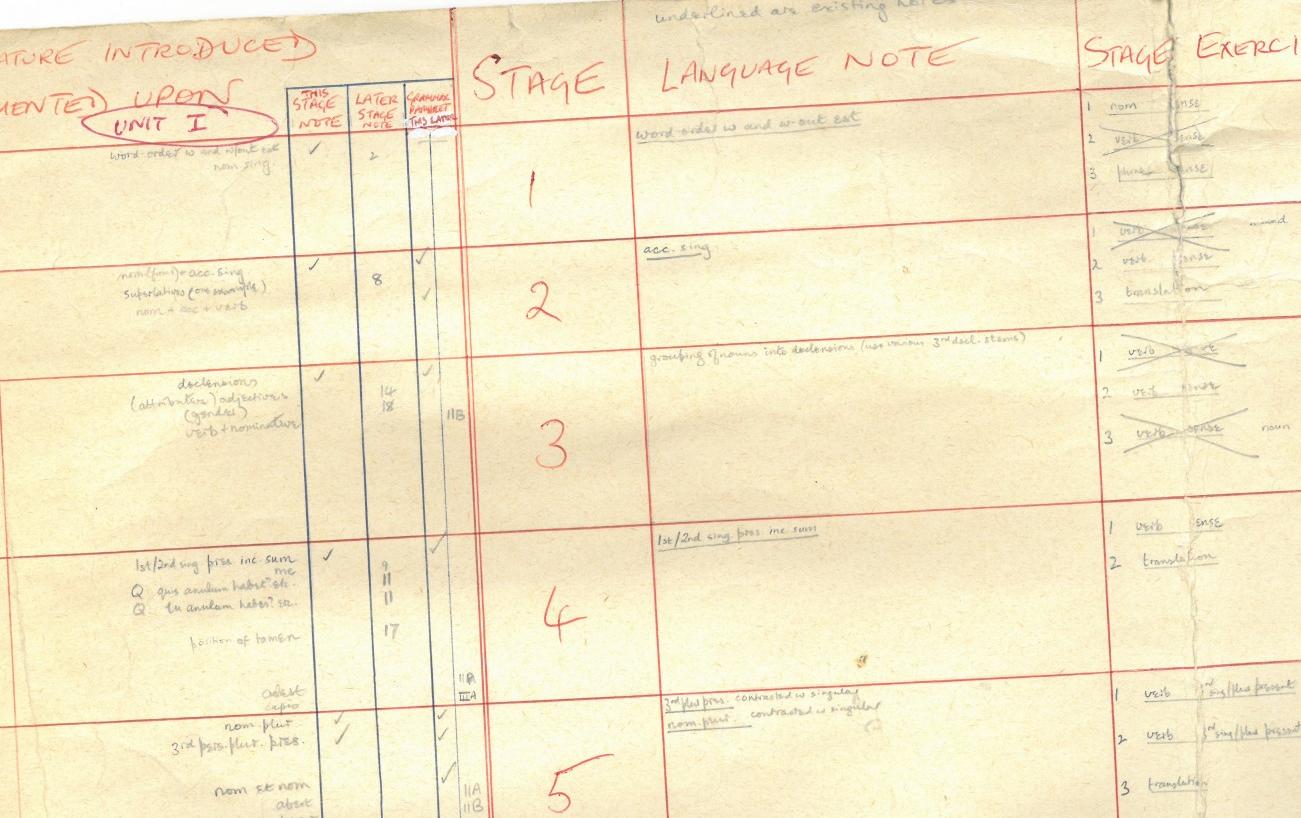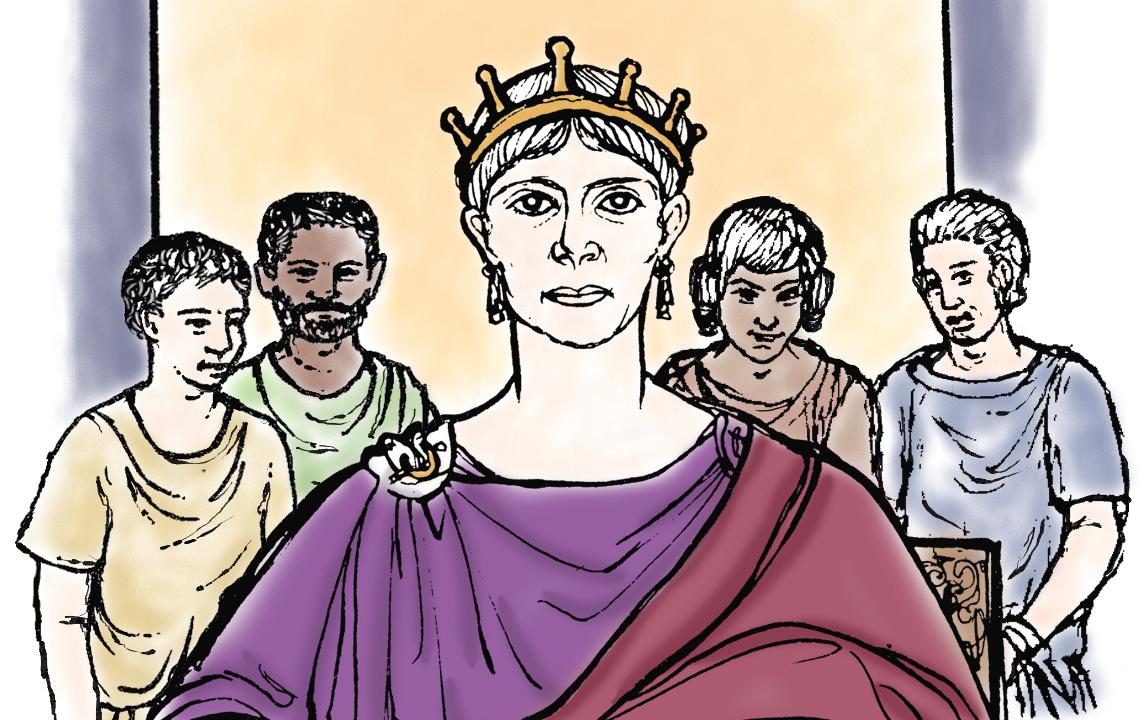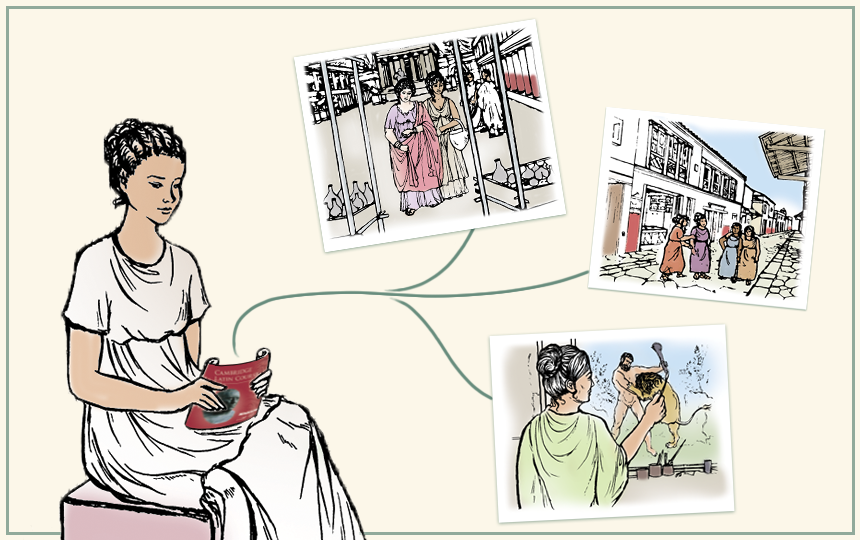What’s in a name? As part of our series CLC: Past and Present, Anna Barker considers some discussions we could have in the classroom on characters’ names, and what they can tell us about the Roman world.

Submitted by Anonymous on Tue, 29/03/2022 - 14:02
Felix in Book I of the Cambridge Latin Course
When I was marking some Year 8 assessment papers the other day, I noticed that one student, ignoring the clue in the capitalisation, had translated Quintus’ name as ‘fifth’. Some bad-natured tutting gave way to self-reflection. Why do I never spend much time discussing the significance, and sometimes the strangeness, of Roman names?
Roman names are inherently fascinating because the conventions are so alien to us. The three names of male citizens – the praenomen (forename), nomen (family name), and cognomen (a kind of nickname) – are often evocative and sometimes perplexing. In the first stage of the first book of the Cambridge Latin Course, students are introduced to the historical figure of Lucius Caecilius Iucundus, referred to in the stories simply as Caecilius. Female names, by contrast, are the feminised version of their father’s nomen, so Metella’s father’s nomen must have been Metellus, and if Caecilius had had a daughter she would have been Caecilia. It could be productive to discuss with students the appropriateness or otherwise of Caecilius’ cognomen: iucundus is an adjective meaning ‘pleasant, agreeable, delightful’, which students may or may not feel is fitting for his character and that of his son (full name Quintus Caecilius Iucundus). How pleasant are Caecilius and Quintus, or indeed how pleasant would we find any Roman patriarch? In addition, the villain Gaius Salvius Liberalis has a cognomen which is directly at odds with how he is presented in the stories – liberalis means ‘generous, lavish, liberal’. It is worth reminding students of the irony of this when Salvius rakes in three million sesterces from his client Haterius in Book IV by selling him a plot of land which he himself was given for free.
Once students progress to GCSE, they are likely to meet more Roman citizens’ names in the forms of the authors of their set texts: Publius Vergilius Maro, for example, or maybe Marcus Tullius Cicero, Publius Ovidius Naso, and Gaius Cornelius Tacitus. Here again we see some bizarre cognomina (Cicero is famously linked to the Latin for chickpea; Naso to nose), which can provide some amusing speculation in class. And further questions arise: why do we refer to some of these authors in English by their cognomina (Cicero, Tacitus), and others by their nomina (Virgil, Ovid)? And how would these authors have referred to themselves?
The CLC stories also do a good job at showing the importance of names for enslaved people and freedmen. In contrast to citizens, enslaved people had one name only, and in many cases these could have been names assigned to them when they were enslaved by the Romans, who would have stripped them of their original name. If they were freed they would then take on the praenomen and nomen of their masters. One of the most satisfying moments in the Cambridge Latin Course is when Clemens pulls rank, declaring in front of Eutychus, an Egyptian mafioso, that his name is Quintus Caecilius Clemens. Eutychus, who had just a second ago been attempting to intimidate Clemens, calling him homuncule (‘little man’), becomes instantly obsequious. It is not explicitly mentioned in the stories, but the freedman Felix who makes an appearance in Book I must now be called Lucius Caecilius Felix, freed by Caecilius for saving the baby Quintus from a thief. It could be interesting to discuss with students the meaning and significance of the names of these two formerly enslaved men: clemens as an adjective means ‘gentle, mild, merciful’ and felix is ‘lucky, happy, fruitful’. Why, when, and by whom were these names assigned to them? Were these names selected for them by Caecilius or a slave-dealer such as Syphax?
But let us return to the issue of Quintus’ name. The praenomen for Caecilius’ son is, according to the teacher’s handbook, ‘supported by inscriptions’, and is not an invention of the authors of the course. My student wasn’t wrong in translating his name as ‘fifth’. But why give your son this name? Was he the fifth child after siblings who had died in infancy? Was he born in the fifth month of the year? Or was Caecilius using a praenomen that was simply popular in previous generations of his family? Elsewhere in the Cambridge Latin Course, we meet a character called Quartus, and there are of course many other numerical praenomina in the historical record, including Sextus and Octavius. In the absence of any clear answers to these questions, I turned to Book I when Quintus celebrates his birthday for clues. The illustrations do not rule out the idea that it could be spring – so perhaps Quintus is a May baby like myself.
Cambridge School Classics Project








